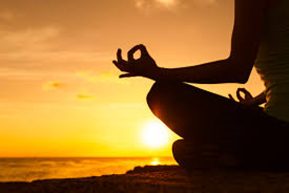Seven Pillars of Self Care

The idea of self-care is different for each us, and while some may believe that only one part of ourselves needs to be good for wellness to occur, current studies would suggest differently.
According to The Global Wellness Institute, wellness is defined as the active pursuit of activities, choices and lifestyles that lead to a state of holistic health, a definition comprised of two very important aspects:
- Achieving wellness requires an ACTIVE pursuit of those intentions, choices and actions that bring us to a state of wellness;
- That wellness is in fact linked to holistic health, extending BEYOND physical health and incorporating many different dimensions that should work in harmony.
If you were building a self-care model for yourself, what would it look like? We hope that after reading each of the pillars that follow, you will consider the importance of each as representing a “pillar of strength” and that when brought together, support the level of wellness each of us needs not simply to survive, but also to thrive.
Pillar #1 - Mental Self-Care

Mental health includes our emotional, psychological and social well-being. When things are good, we can ride out the storm; but when long-term stressors like burn-out find us, our mental health can suffer, leaving us to feel overwhelmed and without purpose.
Good mental health takes work, but it doesn’t have to be HARD. Psych Central encourages Brain Dumping – the practice of writing down random thoughts on a piece of paper – as one way of staying mentally fit. Pick one of the fun, self-care options listed below and see if it works for you!
- Basic Brain Dump: grab a piece of paper as soon as you wake up and write down whatever comes to mind.
- End of the Week Brain Dump: write down all uncompleted tasks at the end of your week; prioritize as needed to catch up and get things done!
Pillar #2 - Emotional Self-Care
 Emotional self-care does not have to be expensive, but it does require time and a daily commitment in order to be successful. In a profession of helping others, we tend to always put ourselves last. Imagine how we would feel if we afforded ourselves the same amount of compassion we give to others?
Emotional self-care does not have to be expensive, but it does require time and a daily commitment in order to be successful. In a profession of helping others, we tend to always put ourselves last. Imagine how we would feel if we afforded ourselves the same amount of compassion we give to others?
Pillar #3 - Physical Self-Care

It’s easy to equate physical self-care only with exercise, but trust us; it’s so much more. To be PHYSICALLY WELL, you also have to EAT WELL and SLEEP WELL!
Good sleep is important; it reduces stress, improves your overall mood and lowers the risk of serious health problems. Your focus will improve after a good night’s sleep as well as your ability to make decisions.
Pillar #4 - Environmental Self-Care

The environment in which you live is far-reaching; it can be a geographical space or the surroundings or conditions in which a person lives. Now consider this:
- How many environments exist in your “world”?
- Do they add to or deplete your sense of health and wellbeing?
- Do they need some work?
Taking care of the spaces and places that make up your environment is the simplest definition for environmental self-care, but the best part of all is that you don’t have to think BIG to get BIG results:
- Make your living spaces inviting and calm (this includes work and office: declutter and rearrange for comfort)
- Stay connected with nature (go for regular walks, even if short)
- Contribute to the natural environment (recycling is a small but important task)
The act of decluttering – like letting go – can be tough; but with intention, and with focus on what we need and truly value in life, living with less can often mean more.
Pillar #5 - Spiritual Self-Care

Spiritual self-care is the time we set aside to tend to the soul, which can and will look different for each of us. For some it will mean cultivating a meaningful life (perhaps through volunteering); for others, it will involve connecting with something larger than themselves (like the “awe” associated to the natural world).
Spiritual self-care can also be accomplished through physical acts, like yoga, which through its ability to connect the mind, body and spirit, is viewed by many as a true, spiritual practice. Yoga also allows for the gift of solitude (for those who enjoy quiet time), or to create a community of practitioners, whether furry or human!
Pillar #6 - Recreational Self-Care

It’s easy to focus on achievement and commitments, but every now and again, shifting the focus to ourselves is a MUST.
Recreational self-care means making time for hobbies, fun activities and new experiences; and for those who have ever wondered why “time flies when you’re having fun” science has an answer.
According to livescience.com, certain chemicals in the brain are released at a higher rate when we experience fun. The end result; our brain loses its sense of time, and soon believes that less time has passed than what actually has.
Pillar #7 - Social Self-Care

Social self-care involves the building of connections and relationships, which from a very basic level is easy enough; but forming healthy bonds takes work – and a little knowledge! According to the experts at the Berkley Well-being Institute, the elements listed below go a long way toward success:
- Developing a strong emotional connection
- Being vulnerable with each other (by opening up and sharing, which strengthens mutual trust)
- Being honest (healthy relationships are not based on lies)
- Having healthy conflicts (which means avoiding criticism)